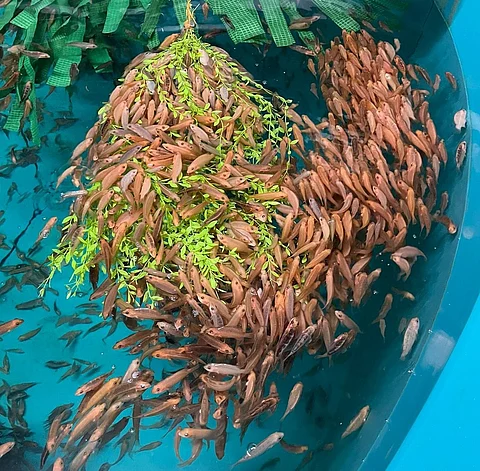

Aeromonas salmonicida causes fatal outbreaks of disease in ballan wrasse and impacts their ability to treat sea lice.
Sustainable Aquaculture Innovation Centre (SAIC)
The University of Stirling’s Institute of Aquaculture, Otter Ferry Seafish, AQUATRECK Animal Health, and Moredun Scientific have received almost £40,000 from the Sustainable Aquaculture Innovation Centre (SAIC) to develop vaccines against Aeromonas salmonicida.
According to SAIC, this kind of bacterium can cause "potentially" fatal outbreaks of disease in ballan wrasse and impact their ability to treat sea lice. Consequently, the funding will permit cleaner fish to control sea lice on salmon farms
Regarding SAIC support, CEO Heather Jones said: "Fish health and welfare is an ongoing focus for the sector, so we are pleased to extend our commitment to this collaborative project and help the valuable research to progress. Formulating a vaccine that enhances wrasse health protection will ultimately support the use of this sustainable sea lice treatment which could unlock further economic growth for the wider aquaculture sector."
The first-stage tests suggest that the vaccine stimulates an adaptive immune response while enabling the cleaner fish to identify the bacteria and react to prevent future infections
The optimal timing for the vaccine administration includes immersion followed by a booster injection before the ballan wrasse are introduced to the salmon farms.
"More so than ever, we are tuned into the power of vaccines in enhancing disease prevention, and the results of the first stage of this project have taken us one step closer to safeguarding ballan wrasse against Aeromonas salmonicida," Dr Andrew Desbois from the Institute of Aquaculture at the University of Stirling, explained.
Finally, Jones mentioned the main purpose of the next phase which focuses on studying the transformation of the main circulating strains. Also, it will investigate the nature of the antibodies and how can protect against the disease.
"The next phase of the project involves exploring the functionality of the antibodies produced. We can then apply these findings and collaborate with vaccine manufacturers to help refine the formulation and provide better protection."
